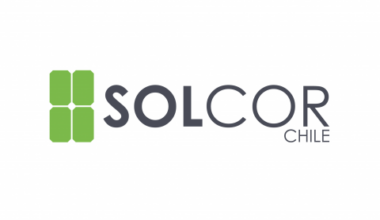When it comes to innovation and technological advancement, the case of the pharmaceutical industry is very particular in relation to the experience of other sectors. As a highly regulated industry, its business model is traditional and face-to-face. This model has worked for a long time, and thus the industry has made no efforts to push innovation. However, there is a vast unexplored opportunity: the innovation to expand digital products and services thanks to data availability.
With the emergence of the Covid-19 pandemic, the industry could no longer be stalled in its position and another perspective was adopted. Quarantines and isolation forced people to reduce their mobility necessarily, which was reduced by 80% in Mexico. In addition, a very particular consequence of the pandemic was that it pushed older adults to interact for the first time with new technologies, forcing them to go digital because they could not go outside to carry out their daily activities. In a global context where variants of Covid-19 are constantly emerging, the new normal will be waiting to receive us for a while longer. The pandemic also accelerated the digitization and expansion of services in the pharmaceutical industry. This drive for innovation will not wane, not only because people still have to isolate themselves, but also because once the pandemic is over, the world will not be the same as before.
Investment in the Health Tech sector has increased to levels that have not been seen in a long time: thus, as of December 2021, 150 Digital Health startups raised more than $14.9 billion in funding through 522 deals. Moreover, Big Tech companies are also starting to venture into various initiatives related to Healthcare. Some areas where innovation played a leading role for the Healthcare industry were Artificial Intelligence, telemedicine, medical devices, mental health, women’s health and new companies entering the industry as healthcare providers.
How is Bayer positioned in this context?
Bayer is one of the companies that is innovating significantly in digital transformation. Specifically, the company has a clear vision of where it wants to go in these next 30 years: through digitization, it seeks to maximize the customer experience and the benefits clients receive. The goal is to scale digital health to create impact, leveraging the company’s expertise in the sector and complementing it with the startup world’s innovative strength to help people live longer and healthier lives.
To this end, Bayer created a strategy to implement this vision. First, Bayer set out to build new business models supported by and made in collaboration with emerging healthcare startups and technology companies developing new healthcare solutions. In addition, the strategy includes talent enablers to generate disruption and foster innovation in the pharmaceutical industry. Although the core of Bayer will continue to be science, the company will implement Artificial Intelligence thanks to the availability of data available.
Through the G4A Partnership Program, Bayer built digital health partnerships with more than 150 companies, resulting in more than 30 direct collaborations, developing and promoting health technology projects worldwide. G4A offers digital health technology startups a gateway to partner with Bayer Pharma in its Growth Track program. The partnership can be tailored to the needs of each startup, providing as-needed resources, expertise, and connections to accelerate their business. It’s a program that helps startups get off the ground by providing funding and one-on-one mentoring by Bayer executives and external industry experts. Bayer already has more than 24 companies participating in this partnership, and the numbers show its success: it has raised $71.6 million and the total value of the Alumni is $122 million. Some portfolio companies include Elly, BioLum, KinAptic, Turbine, and MediKeep.
For larger companies, the Advance Track program identifies and partners with companies that are set to revolutionize the healthcare industry and radically improve people’s lives. In these cases, G4A acts as a guide, establishing connections between digital health companies and different stakeholders within Bayer to produce, for example, M&As, commercial collaborations, large-scale investments, and more. More than 53 companies participated in this program, and the total capital raised was $998 million. Today, the total value of the alumni companies of this program is $1.8 billion. The portfolio includes OnCare, NeuroTracker, Health Bank, Ava Women and eHealth Ventures.
However, these are not the only instances in which Bayer partners with companies to foster innovation. For example, the Pitch Club is an online space where digital health startups can present their solutions and pitch them to healthcare experts, venture capitalists, media, and potential customers. In addition, the G4A also organized in 2021 the virtual forum “Health For All: A Digital Health Forum,” characterized by free admission and a self-scheduled format that determined that anyone, regardless of income, availability, or geographic location, could attend the event.
How is Bayer implementing this strategy in Mexico?
Locally in Mexico, Bayer is implementing a new initiative, the Health Tech Hub, which seeks to be the driving force in the region’s digital transformation. In this way, it partly replicates what Bayer is already doing globally. From Mexico, we support the construction of ideas from scratch with the help of startup founders, and investing in them to help them scale. In addition, Bayer organizes initiatives such as hackathons to solve very concrete and specific problems. In particular, there are certain verticals that the Health Tech Hub is interested in investigating.
These are the following:
- Pharmaceutical business transformation.
- Transformation of clinical practice.
- Diagnostics.
- Treatment and follow-up.
- Patient and family wellness.
- Medicines and medical devices.
Bayer Mexico also created a new sales channel to serve end consumers, whether patients or healthcare professionals. Due to regulatory conditions, Bayer developed this strategy in partnership with a third party, Farmalisto, which is a company focused on online pharmacy services. With the experience of launching an online store, Bayer Mexico acquired a critical learning experience and aspires to increase sales in this new channel through new proposals and commercial alliances.
To cover all these points in which Bayer seeks to innovate regionally, the Bayer Bootcamp was born, a one-month program where selected startups will have the opportunity to collaborate and grow with Bayer Mexico. In launching the program, the main objectives were the following: first, identifying startups with innovative solutions to the Health and Pharmaceutical industry challenges. The second step would be to establish joint ventures or PoCs with them to help them validate solutions and speed up the development of their projects. A final main objective would be to position Bayer within the Digital Health ecosystem.
The search for startups focused on those within or interested in the Digital Health sector. They necessarily had to be Latin American companies that wanted to enter the Mexican market. In addition, other requirements were that these startups had the intention of developing a PoC with Bayer, that they were legally constituted, with complete teams, and with validated products that impacted the supply chain of the pharmaceutical sector. The call lasted two weeks, and 100 startups from 27 different countries signed up, all of them at different stages:
- 30 in the Growth stage
- 28 in Seed stage
- 27 with MVP
- 15 with ideas or PoC.
The selection of the startups was in the hands of Bayer Mexico together with Magma Partners, and the criteria for choosing them was the following: if there were attractive opportunities for collaboration and investment, what was their value proposition, team, and level of development, how big was the market opportunity and what was their differentiating factor. After an excellent call for proposals, 12 startups were selected to solve challenges and carry out projects in alliance with Bayer. The selected startups were:
- Bigenia
- BuscaMed
- Cardiotrack
- Delee
- Doc-doc
- Medikit
- NUBIX
- Nuevo Método
- PROSPERiA
- Riqra
- Vitau Medical
- WEECOMPANY
Bayer C-levels and stakeholders supported the Bootcamp, and this endorsement from the general management was reflected in the organic attendance of the event among participants from different areas. Both Bayer C-levels and the founders of the participating startups were present at the Bootcamp to share knowledge, review, seek solutions to industry challenges, and agree on ways to collaborate. This was positively reflected in the PoCs.
In a second article, we will explore how the Bootcamp was conducted, what its stages were, how the startups collaborated with Bayer staff, and the Bootcamp results. We will also review the reactions and experiences of the participating founders.
This post is also available in: Español (Spanish)



